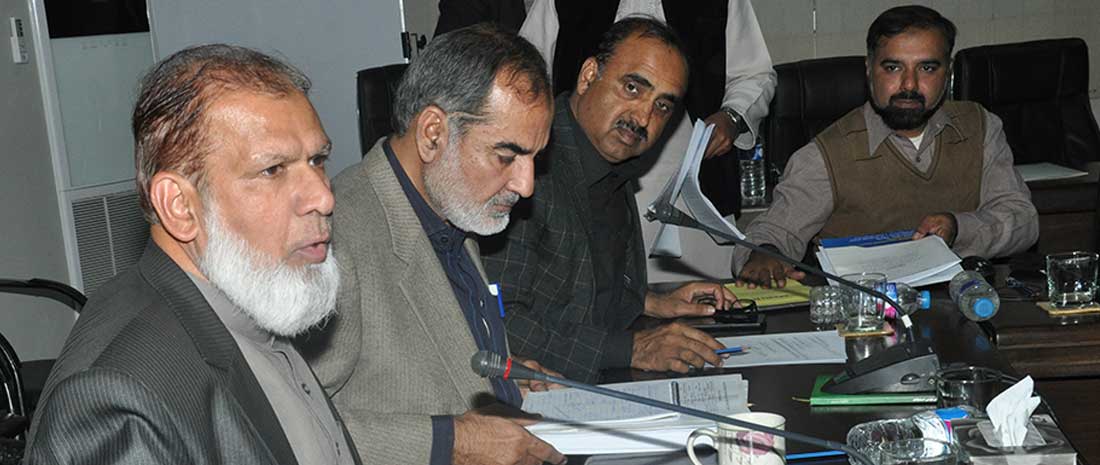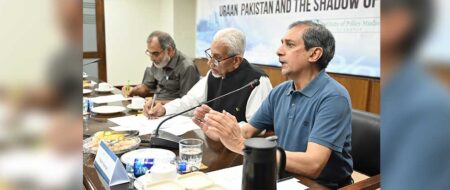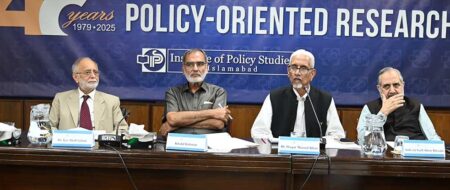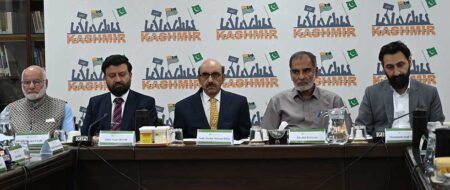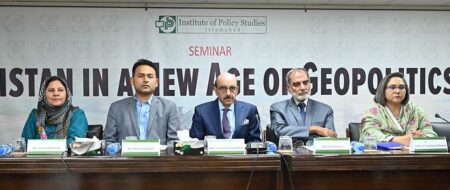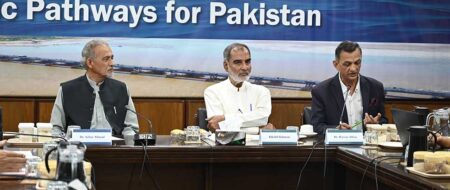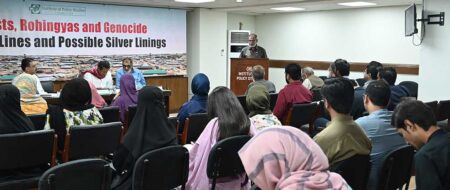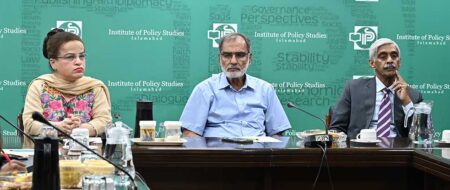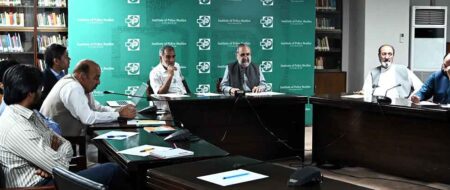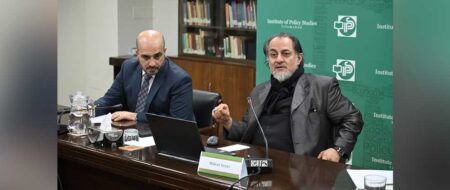Review meeting of the draft National Education Policy for Pakistan (2017)
An assembly of senior academicians, researchers and intellectuals at IPS reviewed the draft of National Education Policy (NEP) for Pakistan, which was proposed under Ministry of Federal Education and Professional Training, Government of Pakistan in 2017, and is expected to be ratified by all the four provinces in the ongoing year with some refinement.
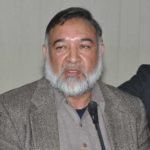 Held on January 5, 2018, the meeting was attended and participated by well-known academic names from across Pakistan including Mian Muhammad Akram, president, Tanzeem-e-Asatiza Pakistan, DG-IPS Khalid Rahman, Prof Rao Jaleel Ahmed, associate professor, School of Social Sciences and Humanities, University of Management and Technology (UMT), Dr Abdus Sattar Abbasi, head, Centre of Islamic Finance at COMSATS Institute of Information Technology (CIIT), Lahore, Dr Qazi Sultan Mehmood, assistant professor, Hazara University, Prof Muhammad Ibrahim, Dr Shahzad Iqbal Sham, and Shagufta Omar from International Islamic University, Islamabad (IIUI), among others.
Held on January 5, 2018, the meeting was attended and participated by well-known academic names from across Pakistan including Mian Muhammad Akram, president, Tanzeem-e-Asatiza Pakistan, DG-IPS Khalid Rahman, Prof Rao Jaleel Ahmed, associate professor, School of Social Sciences and Humanities, University of Management and Technology (UMT), Dr Abdus Sattar Abbasi, head, Centre of Islamic Finance at COMSATS Institute of Information Technology (CIIT), Lahore, Dr Qazi Sultan Mehmood, assistant professor, Hazara University, Prof Muhammad Ibrahim, Dr Shahzad Iqbal Sham, and Shagufta Omar from International Islamic University, Islamabad (IIUI), among others.
After analyzing the scheme from varied angles including the goals, objectives and key areas of education policy and different forms of education prevalent in the country, the esteemed gathering generally endorsed the approach adopted in devising the much-awaited policy – whose earlier framework dates back to 2009 even before the devolution of powers to provinces following the 18th constitutional amendment – albeit sharing ideas and suggestion for its further amelioration especially in the areas of non-formal basic education, early childhood academic development, student guidance and character building, primary, secondary and higher education, health, sports and physical education, programs for teacher training, private education systems, religious educational institutions, technology-oriented education, Technical and Vocational Education and Training (TVET), examination services and student assessment mechanisms.


